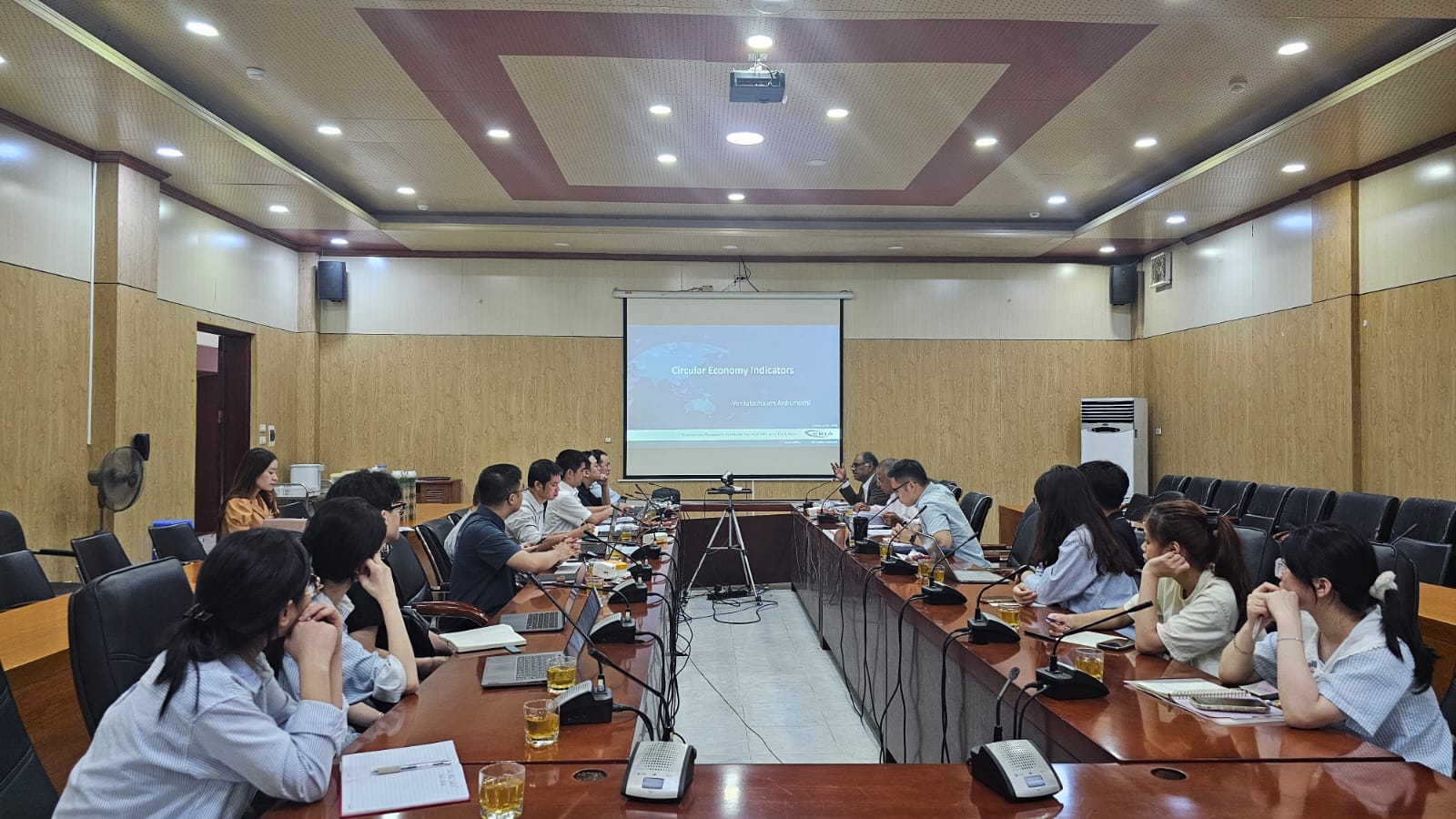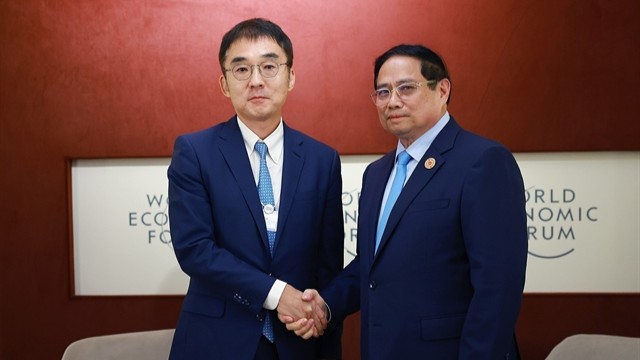ACRF: Potential Green Recovery, New Social Contract Towards Sustainable ASEAN Future
Date:
10 December 2020By:
Venkatachalam AnbumozhiCategory:
OpinionsTopics:
Energy, Energy SecurityShare Article:
Print Article:
By Dr Venkatachalam Anbumozhi, Senior Energy Economist: With the outbreak of COVID-19, ASEAN member states are now in the middle of dealing with a combination of shocks: the public health crisis, a lagging regional economy, stressed financial sectors, and the climate change threat. As the pandemic is far from over, the ASEAN economy is projected to shrink 3.8 percent in 2020, its first contraction in 22 years.
The individual states’ initial responses to the pandemic have been two-pronged: to tackle the health emergency first, and to restore economy second. Given the scale of the socio-economic impacts, the 37th ASEAN Summit recognized the need for coordinated action and promulgated the ASEAN Comprehensive Recovery Framework (ACRF) to serve as the region’s consolidated exit strategy from the COVID-19 crisis.
The five strategic areas of the ACRF are intended to address both the region’s immediate needs "during the reopening stage, for a successful transition to the ‘new normal’ as well as medium and long term need [sic] through the stages of COVID-19 recovery and for longer-term resilience”. The framework also aims to advance a more sustainable and resilient future for the region.
The pandemic has put ASEAN governments in a bind between saving lives and protecting livelihoods. Since March, ASEAN states have announced several special economic recovery packages equal to 2 percent to 7 percent of national gross domestic products (GDPs), which include interventions for immediate relief, liquidity and payment deferrals for low-income households and small businesses. These broader economy-wide interventions were released in phases to stop contraction and stimulate growth.
Despite their correct intentions, implementing these measures is not easy. Financial aid to small and medium enterprises is not being distributed effectively because of challenges in identifying and targeting those that need immediate assistance. The challenge of millions of migrant laborers and informal workers raises a systemic dilemma: Will they return to their old jobs and if not, what kind of decent employment could they find?
The persisting need for social distancing policies and health protocols continue to disrupt supply chains, impede cash flow and make it difficult for small businesses and unskilled workers to resume normal operations.
But the ACRF and its implementation plan offers an opportunity to shape the future in a manner that would deliver a new social contract between public organizations, the private sector and the people; one that rests on a pillar of commitment to create jobs, accelerate economic growth and achieve environmental sustainability. Among policymakers, the trinity of jobs, growth and sustainability is often dubbed a 'mission impossible'.
The European Union unveiled a 740 billion-euro recovery package as the centerpiece of its economy-oriented response to the pandemic. About 25 percent of the EU stimulus is set aside for climate-friendly measures like retrofitting old buildings, clean energy technologies, low-carbon vehicles and sustainable land use. These investments under the Green New Deal for Europe are to create 1 million new jobs in the low-carbon sector over the next decade, while investing in the circular economy could add another 700,000 jobs.
The ASEAN region was on an unsustainable and vulnerable path even before the pandemic and its economic recovery must avoid the dangers and fragilities of the past, not only with respect to the climate, but also more broadly with respect to the environment and planetary boundaries such as biodiversity and natural capital.
As the region most vulnerable to climate change in the world, the pandemic has compromised ASEAN’s accumulated efforts to decarbonize its electricity sector, industries and transportation networks and put a temporary halt to investments in building sustainable smart cities.
However, the ACRF strategies give the assurance that there is no going back to the “old” normal that was characterized by climate risks, high inequality and low labor productivity. In this context, ASEAN states will need to consider more ambitious stimulus packages that can help revive local economies, restore decent jobs and build a low-carbon future for its citizens.
As policymakers prepare interventions and industries consider changes to their business models, the pandemic crisis and stimulus packages offer a once-in-a-generation opportunity that could work towards building a more sustainable future. In this context, the implementation of the ACRF should consider the following three principles in guiding future initiatives and investments.
First, the right investments will need to be fast and labor-intensive in the short run and have higher multiplier co-benefits in the long run. Investments with these characteristics include low-carbon infrastructure like renewable energy assets, building energy efficiency, research and development in green technologies, rural support for climate-smart agriculture, education and skill development, natural capital investment to improve ecosystem resilience, and restoration of degraded forests. There is strong evidence that fiscal multipliers from these types of investments outperform alternative investments.
Second, the forthcoming stimulus packages will also need supporting policies to maximize the benefits of the investments. Falling fossil fuel prices provide an opportunity for carbon pricing and pervasive subsidy reform, which can provide a source of much-needed revenues and be part of wider fiscal reforms to restore financial stability. Complementary, supportive regulations and competition policies can provide clear signals and induce innovation in high-growth sectors to lower budget expenditures and bring the economies back to full activity. Any change in the current policies will need to carefully consider distributional consequences to ensure social safety nets for unemployed workers and vulnerable communities.
And third, it will be critical to mobilize all pools of finance – public, private and international – and utilize them more effectively. This includes strengthening national development banks, bolstering and effectively using international climate finance, capitalizing bond markets and enhancing strategic partnerships with the international financial community.
Recovery packages are set in a macro-fiscal context, in which fiscal expansion is necessary but severely constrained in many ASEAN states. Hence, it will be crucial to substantially augment the mobilization of private finance through trade and investment channels while aligning financial outlays with the Paris Climate Agreement and the Sustainable Development Goals.
As the implementation of ACRF unfolds, coordinated policy responses will require resolute leadership at the regional level, willingness to experiment and change at the national level and innovative public-private financing models at local levels.
The new social contract and greening the recovery will be an economically prudent, bold choice for ASEAN to reduce damaging inequalities and bring back growth within planetary boundaries.
This opinion piece was written by ERIA's Senior Energy Economist, Dr Venkatachalam Anbumozhi, and has been published in The Jakarta Post . Click here to subscribe to the monthly newsletter.








